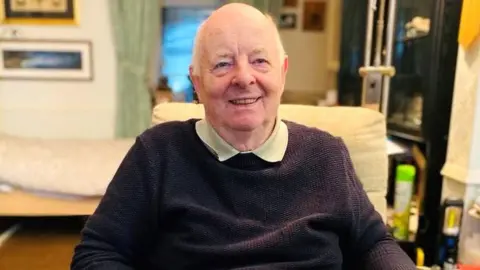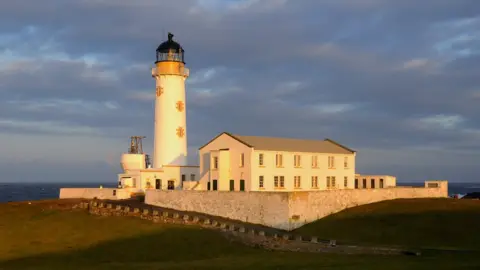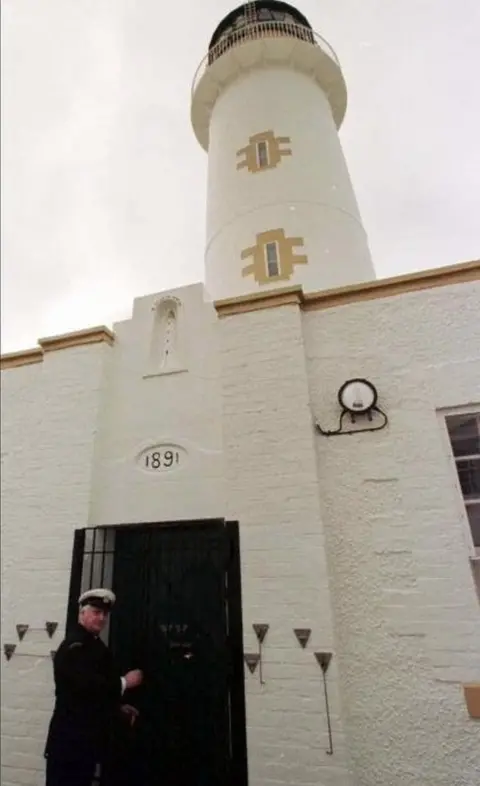I was one of Scotland's last lighthouse keepers
 BBC
BBCWhen Bill Gault and his colleagues locked up Fair Isle South Lighthouse on Shetland 25 years ago it signalled the end of a 200-year-old tradition of manned beacons.
"It was the end of an era," Mr Gault, now 82, tells me.
"It was a day to remember, although it's true to say no lighthouse keeper raised a smile."
That date - 31 March, 1998 - saw the completion of the Northern Lighthouse Board's automation programme.
Instead of a team of lighthouse keepers keeping the lights on in remote coastal locations, the beams were now to be controlled from a nerve centre in a Georgian townhouse in the centre of Edinburgh.
Mr Gault had been a lighthouse keeper for 32 years and was based at 22 different stations across Scotland during his career.
His duties ranged from maintaining the lights to polishing the brasswork and lime washing the lighthouse exterior.
 Northern Lighthouse Board
Northern Lighthouse BoardMr Gault says he witnessed everything around the coastline from Nato exercises to creel boats getting into difficulty.
"We had to cope with bad weather and the isolation of being stranded on the lighthouse at times," he says.
"But there's nobody could ever put a figure on the amount of lives that were saved by the lights around the coast."
One of Mr Gault's most abiding memories was the Longhope lifeboat disaster of 1969.
Eight men died when a lifeboat capsized after setting out late in the evening from Hoy in Orkney to help the Liberian cargo ship Irene, which was adrift in a fierce storm.
Mr Gault says: "On the night that the Longhope lifeboat was lost, I was on the island of Copinsay in Orkney, and the storm was storm force 10 gusting 11 at times, winds hitting over 100 miles an hours and this tragedy happening.
"We sat with binoculars and the telescope looking for any trace.
"Even in the storm conditions, we could see what had happened in the distance."
The boat Irene became grounded and everybody on board was later brought to shore safely.
"In the meantime, mountainous seas in the Pentland Firth had rolled the lifeboat over," Mr Gault says.
"That was an emotional day for me and it still gets me."


Following automation, Mr Gault served with the Museum of Scottish Lighthouses in Fraserburgh and acted as a tour guide at the attraction for five years.
Mike Bullock is the chief executive of the Northern lighthouse Board.
It operates and maintains 208 lighthouses and 174 buoys across Scotland and the Isle of Man.
He says: "It's sad to see that way of life going but it's kind of inevitable in terms of moving the reliability and the function of the lights forward. Automation actually started centuries ago."
All the lights are now monitored remotely and small teams of technicians go out to maintain and check them throughout the year and fix any faults.
Mr Gault remembers his last day as a lighthouse keeper with sadness but says it was "marked well" with the Princess Royal there for the official ceremony.
"It wasn't a happy day for me but I'm pleased I was a lighthouse keeper for 32 years," Mr Gault says.
"I'm proud to be one of the last."
